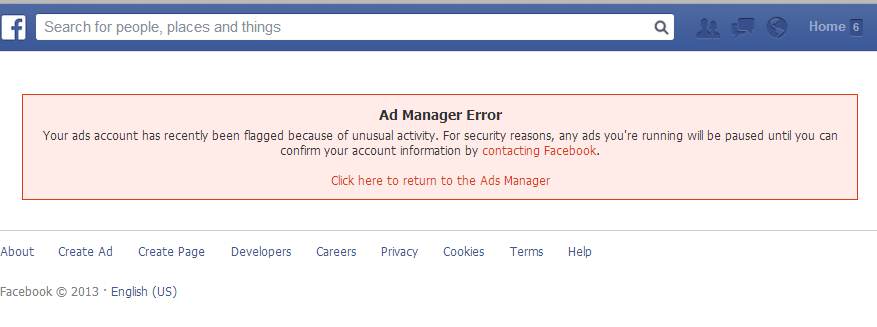Google and Facebook are two platforms that have both built and killed business plans. Staying compliant with their promotion regulations when advertising is imperative because quite simply, you don’t want to be the latter.
Although there are some differences between Google and Facebook advertising guidelines, at they end of the day, both platforms value user experience. In trying to create a safe and positive experience for users, they have forged a set of policies that apply to all promotions on their networks. Failing to comply with these rules can get your ads disapproved, your account disabled, or even a domain and page banned.
Unfortunately, their advertising regulations aren’t always so clear-cut. That is, just reading their policy pages – though highly recommended – isn’t always enough to keep you from running into compliance issues.
Now, it’s easy for small businesses and digital marketers to be a bit egocentric and rant that Google and Facebook are out to make their life as an advertiser, “miserable.” While compliance can certainly be a nuance from a creative or business perspective—it’s actually quite legitimate. Platforms are essentially combating ads that are manipulative, spammy, and illegal. At the end of the day, they are protecting consumers/users from being mislead by businesses. And in actuality – something we don’t often think about during our bitter rants – they’re also protecting YOUR industry.
There has been so many foul moves in digital marketing—marketers with bad practices, who have essentially ruined it for specific industries. Take for example, a health nutritionist, trying to sell an honest product. The health industry has seen a myriad of malpractice in terms of advertising.

While it’s understandable, legitimate, and certainly important to protect the user, honest businesses have to navigate advertising policies that are explicitly more regulated, which inherently puts their accounts at a higher risk of running into compliance issues regardless of the validity of their product and the authenticity of their marketing tactics.
At the same time, spammy ads and disingenuous marketing tactics can still sneak past policy and competition becomes difficult. Maybe you find yourself rationalizing, “well, everyone is doing it, so…”
No, trust me mom was right about this one.
“If everyone jumped off a bridge, would you jump too?”
– Mom 1986
Why? Well, you invest significantly in building a business plan around a specific marketing strategy, you start making money, and… boom! You get banned—it’s gone! It’s in everyone’s best interest to keep it clean so that you have a marketing strategy that is solid and long-lasting.
Okay, so you’re that kid that came back at your mother’s comment with… “well, it depends on how high the bridge is.” Maybe you prefer to continue trick to click strategies, incongruent ads, etcetera etcetera… because you’re concerned that the businesses that are marketing in that fashion have the upper hand. Maybe you even think, “okay, I’ll play a little dirty, tone it down when needed, and if I get banned, I’ll simply open a new account on a different domain.”
Listen, it’s not that easy… and even if you don’t care about the user or the platform (which is inherently masochistic as they are both essential to your business) it’s really not in your best interest to go around changing your business’ name or domain—certainly not a way to build a successful, long-lasting marketing strategy.
“If you are in a heavily regulated industry – although we’re here to help, and we certainly can help – it’s important for us to emphasize that we’re not interested in maintaining the status quo by feeding you sly tactics to circumvent policy. Rather, we prefer to lay out policy in a comprehensive and comprehendible fashion, demonstrate compliant practices that still sell within your industry, and inspire new thought in that direction.”
Uri Segal, CEO and Co-Founder Quality Score
Understanding the underlying reasons for policy differences between platforms
Mastering policy in one platform won’t make you impervious to compliance issues on another. Although Google and Facebook are both trying to provide their users with the best possible experience, there are some important differences in policy (I will go into this in more depth in Part 2). Knowing the underlying reasons for these differences helps you know how to approach these platforms and efficaciously steer clear of trouble.

Google principally seeks to enable businesses to promote a variety of products, services, applications, websites across their network, and for them it’s important to keep the entire advertising ecosystem clean for the users, advertisers, and publishers. They are committed to fighting bad advertising, especially in terms of malware, counterfeiters, and weight loss scams. Beyond the scope of illicit activities, they place the utmost importance on coherence between the advertisement and the product. And in doing so, they protect the user from lies, tricks, or being mislead.
[caption id="attachment_761" align="aligncenter" width="703"]
 *Numbers taken from yearly reports published by Google[/caption]
*Numbers taken from yearly reports published by Google[/caption]
Our Chief Operating Officer and Co-Founder, Joel Bondorowsky, believes there’s a bit more to it than just protecting the end user. He thinks another powerful motive pertains to click-through rate (CTR) and that Google is likely trying to level the playing field for other industries.
“For example, it’s easy to get people to click on an ad like, “1 weird tip to burn belly fat” as opposed to other verticals like, for instance, an ad for a car dealership. Smaller businesses simply cannot compete on the GDN without such policies.”
Google has invested substantial resources into stopping bad advertising practices, in terms of sophisticated technology and a global team dedicated to fighting bad ads. When a business is not compliant with their policies, they have a highly structured approach to dealing with said issues—offering detailed information about breaches and how to address them (we’ll get into this in Part 3). Only in cases of repeated or egregious violations will they ban businesses from advertising with them.
[caption id="attachment_762" align="aligncenter" width="703"]
 *Numbers taken from yearly reports published by Google[/caption]
*Numbers taken from yearly reports published by Google[/caption]
As depicted in in the graph above, 2014 saw another major drop in the overall number of bad advertisers banned from Google’s ad systems. Mike Hochberg, the former director of ads engineering, attributed the decline to scammers “being thwarted by our safety screens and searching for less-secure targets.”

Facebook is a bit more honed in to various aspects of the user experience, than Google. This is understandable given the fact that they are a social networking website. Their most obvious objective is to bring and keep people on their platform for as long as possible.
It’s important to understand that the primary purpose of Facebook, from a user perspective, is social communication rather than content viewing. It just so happens that Facebook has a plethora of information about their users that allows advertisers to effectively target ads to those who will be more responsive to the content despite the intent of social communication. Regardless, it is because of this intent that a different angle and level of importance is placed on user experience.
For example, when businesses are running spammy ads or ads that have no congruence with the actual offers on the landing pages those ads take users to, that’s a bad experience for people who are browsing Facebook. So Facebook, as a social networking website, is serious about weeding those ads out and keeping their users happy.
Now, when it comes to handling compliance issues, Facebook doesn’t yet have the organizational structure that Google has. Quite simply, they don’t have the manpower because as an ad platform they’re still growing quite rapidly.
[caption id="attachment_764" align="aligncenter" width="703"]
 *Active advertisers are those who have advertised in the last 28 days *Numbers taken from yearly report published by Facebook[/caption]
*Active advertisers are those who have advertised in the last 28 days *Numbers taken from yearly report published by Facebook[/caption]
Facebook has representatives (a topic we will further discuss in Part 4, in terms of when and how to get one), yet they don’t have the same organizational structure as Google insofar as being able to immediately call and talk to a support team to resolve compliance issues. So it’s just far more efficient for Facebook to generalize, in broad terms, their advertising policies and resort to disapproving ads, disabling accounts, or banning a domain and page. This is precisely why understanding their policies is evermore crucial.
So now that you have a good idea of why platforms forge advertising policies, the importance of being compliant, and a general understanding of the underlying reasons for policy differences between platforms, it’s time to for you learn the policies themselves!
Join us in Part 2 of this guide for a general overview of advertising guidelines for Google and Facebook, as well as useful tips to stay compliant—regardless of your industry.
[ALERT] New Facebook Policy Could Put Your Ad Accounts at Risk

(Published: November 16, 2016)
[Part 2] General Advertising Guidelines for Google and Facebook

(Coming soon)
[Part 3] How Ads Get Disapproved, Accounts Disabled, & Domains Banned
![[Part 3] How Ads Get Disapproved, Accounts Disabled, & Domains Banned](http://www.qualityscore.co/wp-content/uploads/2016/08/photo-12-shit.jpg)
(Coming soon)
[Part 4] What to Do if Your Site, Ad, or Account Gets Banned
(Coming Soon)
Return to Intro: Best Practices Guide To Google And Facebook Compliance

 Twitter
Twitter Facebook
Facebook LinkedIn
LinkedIn

